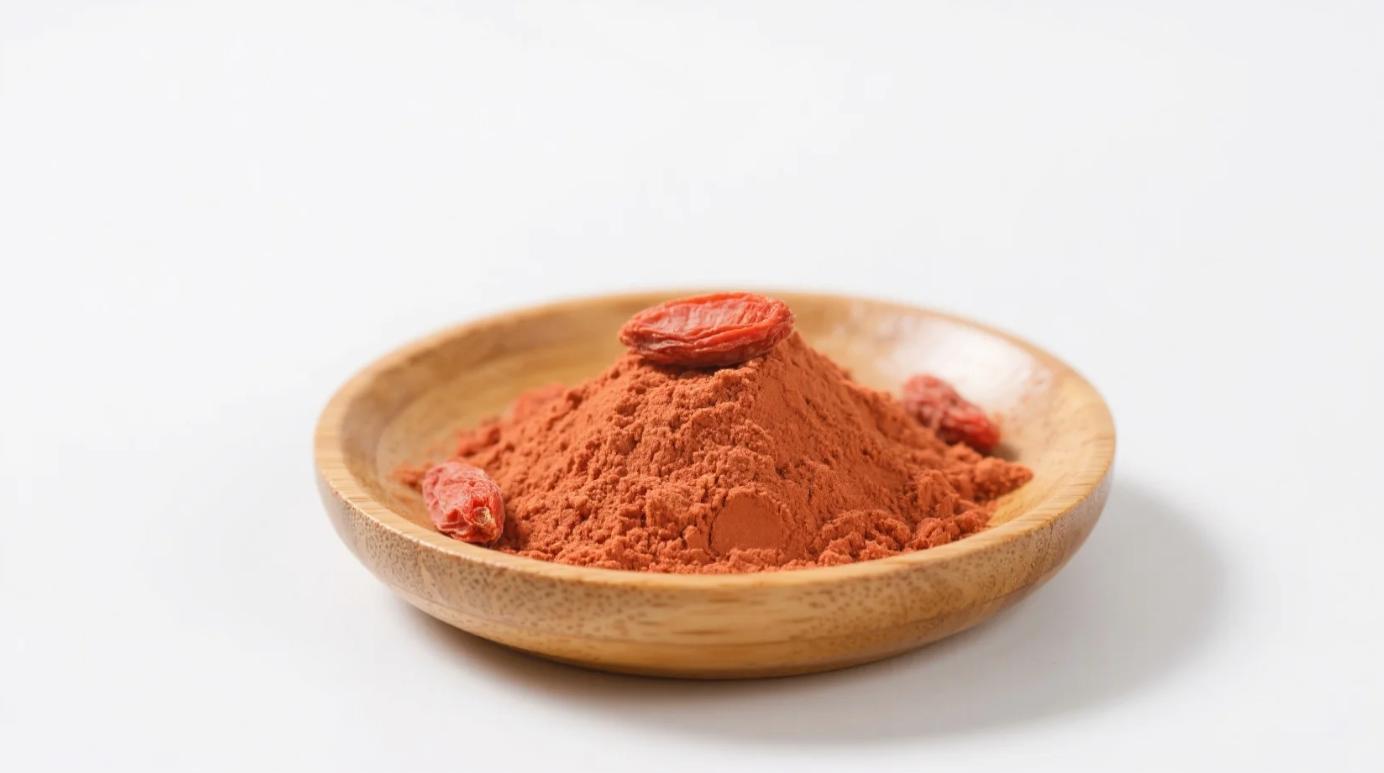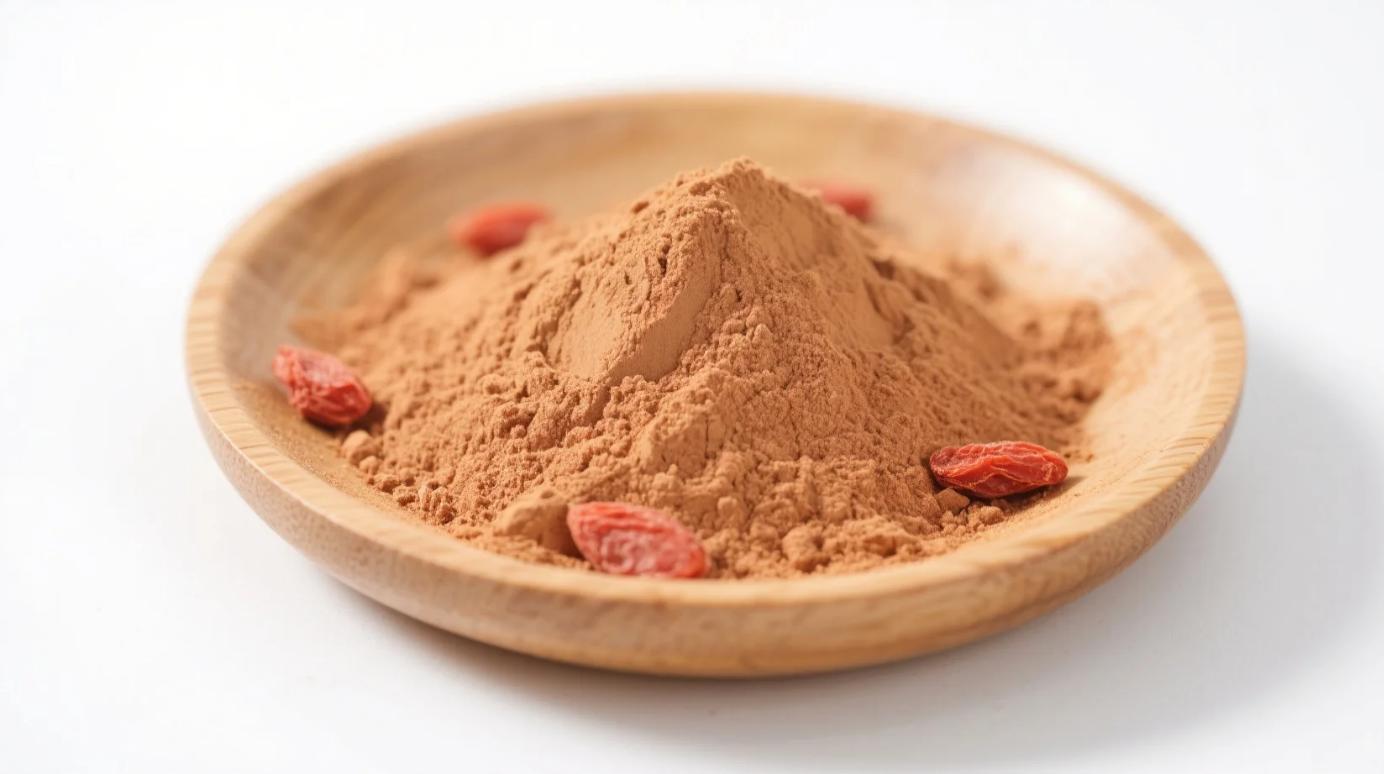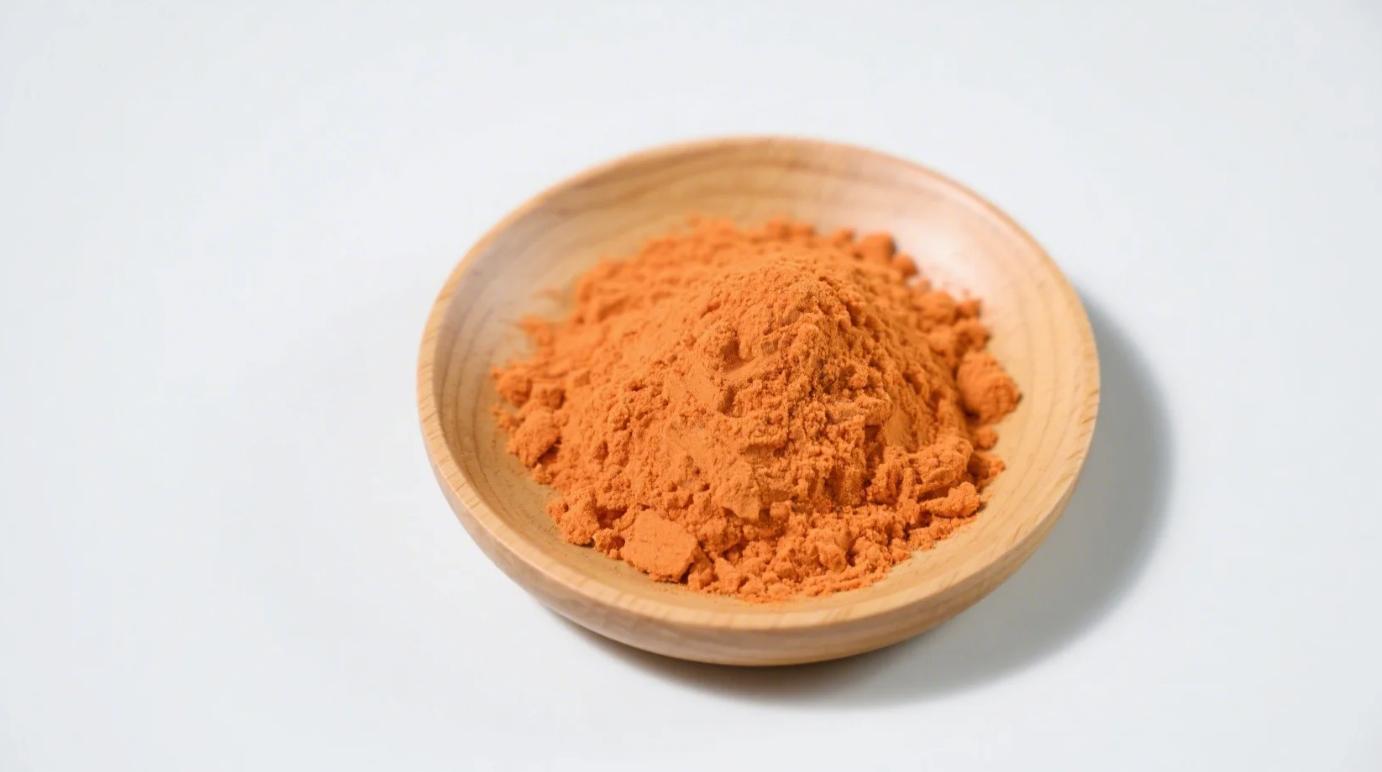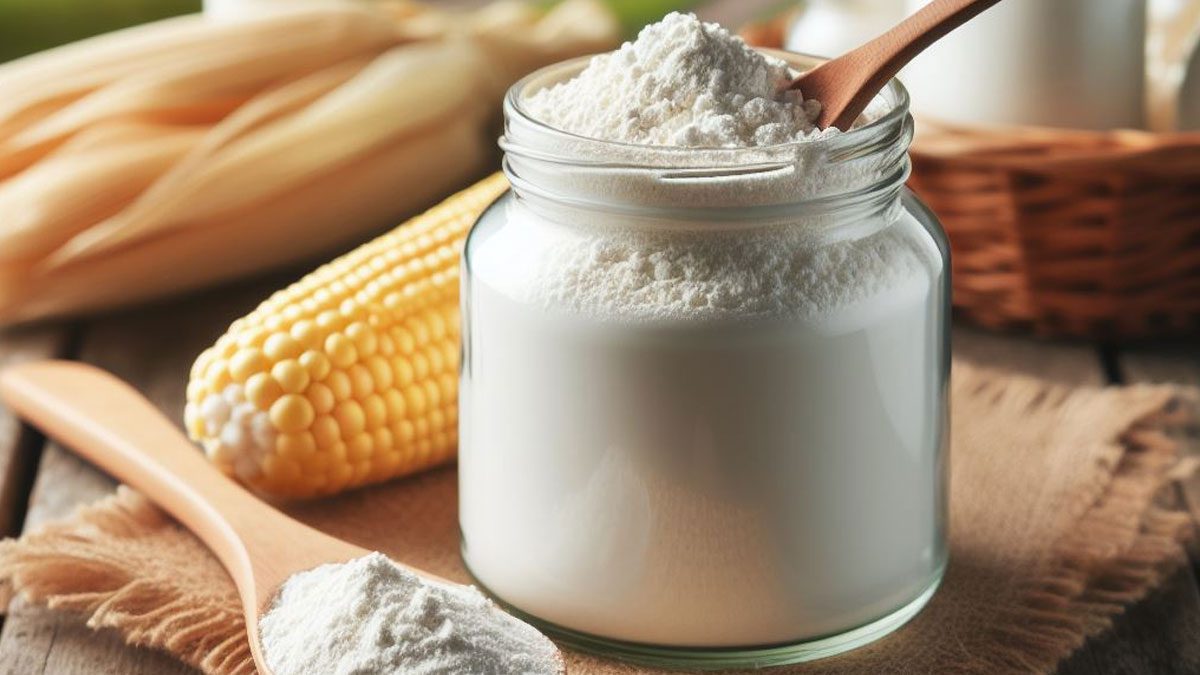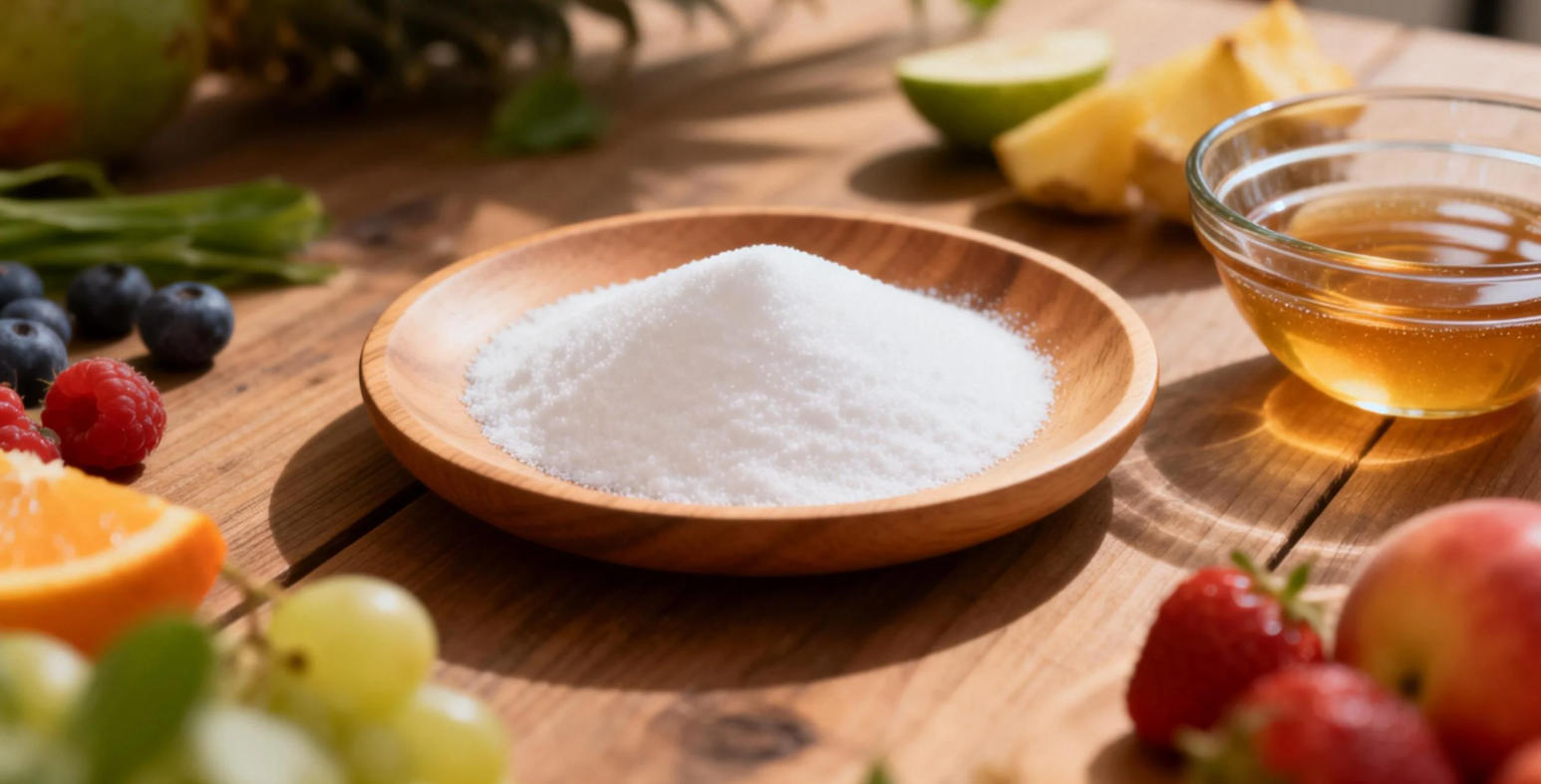Table of Contents
Goji berries, celebrated as a “longevity fruit” in Traditional Chinese Medicine, are packed with antioxidants, vitamins, and immune-boosting polysaccharides. But while organic goji powder and supplements offer myriad benefits, they aren’t for everyone. Let’s explore who should avoid goji berries, potential risks, and why choosing organic matters for safe consumption.
6 Groups Who Should Avoid or Limit Goji Berries
1. People on Blood Thinners (e.g., Warfarin)
- Risk: Goji berries are rich in vitamin K (≈50µg per 30g), which can counteract blood thinners and increase clotting risk.
- Advice: Avoid goji if taking anticoagulants unless approved by a doctor.
2. Autoimmune Disease Patients (e.g., Lupus, RA)
- Risk: Goji’s immune-stimulating polysaccharides may overactivate the immune system, worsening flare-ups.
- Advice: Consult a rheumatologist before using organic goji powder.
3. Pregnant or Breastfeeding Women
- Risk: Limited safety data; animal studies suggest high doses may stimulate uterine contractions.
- Advice: Opt for safer alternatives like organic raspberry leaf tea.
4. Allergy-Prone Individuals
- Risk: Goji belongs to the nightshade family (like tomatoes). Cross-reactivity may trigger itching, swelling, or anaphylaxis in sensitive individuals.
- Advice: Patch-test goji powder on skin before consuming.
5. Hypoglycemics or Diabetes Medication Users
- Risk: Goji may lower blood sugar excessively when combined with insulin or metformin.
- Advice: Monitor glucose levels closely if using goji extract powder.
6. Pre/Post-Surgery Patients
- Risk: Goji’s blood-thinning properties may increase bleeding risk during procedures.
- Advice: Discontinue 2 weeks before surgery.
Organic Goji vs. Conventional: Why It Matters for Safety
| Factor | Organic Goji Powder | Non-Organic Goji |
|---|---|---|
| Pesticide Residues | None (certified organic farming) | Often contaminated with acetamiprid, carbaryl |
| Additives | No sulfites or artificial dyes | May contain sulfites for color retention |
| Allergen Risk | Lower (no cross-contamination) | Higher (shared equipment with nuts, soy) |
Safe Use Tips for Goji Lovers
- Start Small: 5–10g dried berries or 1 tsp organic goji powder daily.
- Drug Check: Review medications with a doctor (e.g., antidepressants, blood pressure drugs).
- Choose Organic: Reduces toxin exposure and enhances nutrient density.
FAQs
Q: Can kids eat goji berries?
A: Yes, but limit to 5–10g daily for under-12s (possible hyperactivity from overconsumption).
Q: Does cooking destroy goji’s risks?
A: No—heat doesn’t neutralize vitamin K or allergens.
Q: Alternatives for vitamin A?
A: Try organic carrot powder or sweet potato puree.
Q: How to spot an allergic reaction?
A: Symptoms include hives, throat tightness, or dizziness within 1 hour of intake.
The Verdict
While organic goji berries and powders are a nutrient-dense superfood for most, they pose risks for specific groups. By understanding your health profile and opting for certified organic products, you can safely enjoy goji’s benefits—or pivot to safer alternatives when needed.
Ready to Nourish Wisely?
If goji is right for you, choose our certified organic goji powder—lab-tested for purity and free from toxins. For those who should avoid goji, explore our organic elderberry or acai options.
Your health deserves clarity, not compromise.
Related Products
Organic Goji Powder
Fine red-orange powder; moisture ≤5%; polysaccharides ≥30% (UV); sweet, slightly tart flavor; low-temperature dried and…
Organic Goji Extract Powder
Fine reddish-orange powder; moisture ≤5%; polysaccharides ≥50% (UV); slightly sweet, characteristic goji flavor; low-temperature extracted…
Organic Carrot Powder
Drying Method: Spray Drying, Freeze Drying
